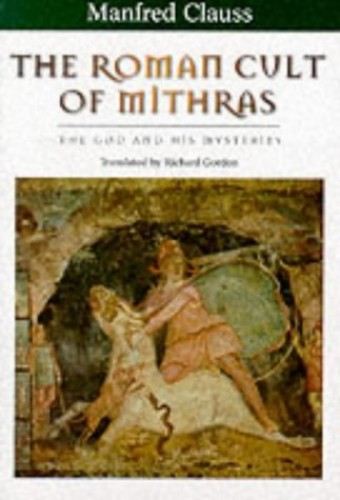Mithras was not able to become the one God of the Roman Empire because He did not admit women and because his myth could not be historicized.
A sacrificial death and a proclaimed Resurrection, "under Pontius Pilate," were meant to complete an age that had begun with Abraham, according to St Paul, but became instead the beginning of the new age of eternal Rome proclaimed by Virgil, a sort of pagan prophet. Christianity, ending divisive dietary laws, incorporating local saints and a Mother of God and adapting Greek philosophy, was comprehensive and adaptable enough for the Empire.
The Voluspa, ends when, after the Ragnarok, the next generation of gods awaits the coming of "a mighty lord who comes on high, all power to hold, all lands to rule." A Catholic priest who addressed us at school suggested that the Hindu gods were "the man on the road to Emmaus." One of those gods, Krishna, said in the Gita, that "...the gods are My million faces." My current thoughts on the One are presented here, updated since the last time I linked to it.
Having cast the net as widely as possible, we must return to Gratillonius in his Mithraic fortress inside a pagan citadel surrounded by the hosts of Christianity.

6 comments:
Kaor, Paul!
I think some critics believe the VOLUSPA was influenced by Christianity. Not impossible if we assume Scandinavian travelers, raiders, merchants, etc., bringing back some knowledge of the Faith to Norway, Denmark, Sweden.
No, the Man on the road to Emmaus was simply the Risen Christ, temporarily veiling His identity. No need to drag in Hinduism.
Ad astra! Sean
Sean,
But the Man on the road to Emmaus was (supposedly) Christ in a different form. This priest was suggesting that Hindu gods can be seen as Christ in a different form.
Paul.
Kaor, Paul!
And that priest was wrong--because there are no Hindu gods. I will absolutely oppose all efforts to morph Christianity into erroneous faiths.
I recall how Stirling touched on that bad idea in THE PESHAWAR LANCERS, where mentioned was made of some Angrezi Raj Anglicans advocating that Anglicanism should be merged into Hinduism. And of the Catholic crown prince of France-Outre-Mer politely but firmly rejecting such an apostasy.
I have no difficulty accepting that, for whatever reasons, there could be times when the Risen Lord temporarily veiled His identity.
Ad astra! Sean
Sean,
Occam's Razor: the man on the road to Emmaus was not Jesus but someone else who inspired the disciples by interpreting scripture to argue that Messiahship involved suffering, then slipped away when he saw that they were latching onto what he said. His words recalled Jesus' so they convinced themselves that he had been Jesus. Rushing back, they learned that Peter, suffering bereavement, disillusionment and guilt, had had a traumatic experience as of meeting Jesus. The disciples met to reinterpret scripture inspired as they thought by the risen Jesus spiritually present which Evangelicals claim to this day. Luke recounted this as if Jesus had been visibly, tangibly present.
Surely the one God would accept devotion to Krishna as devotion to Him even if Krishna does not exist.
Paul.
The problem with this is that I do not think that the disciples would have hung around in Jerusalem after the Crucifixion. Those that were not killed would surely have fled elsewhere and stayed away.
Kaor, Paul!
Or they could have gone into hiding, as when we see mention of the Apostles meeting behind locked and closed doors.
Ad astra! Sean
Post a Comment